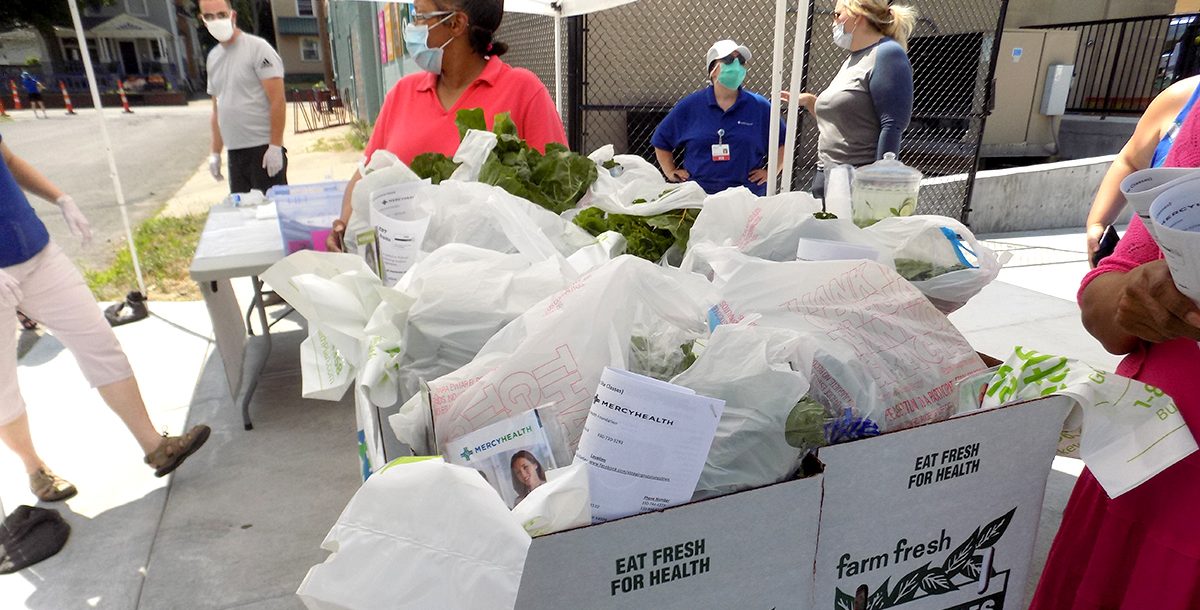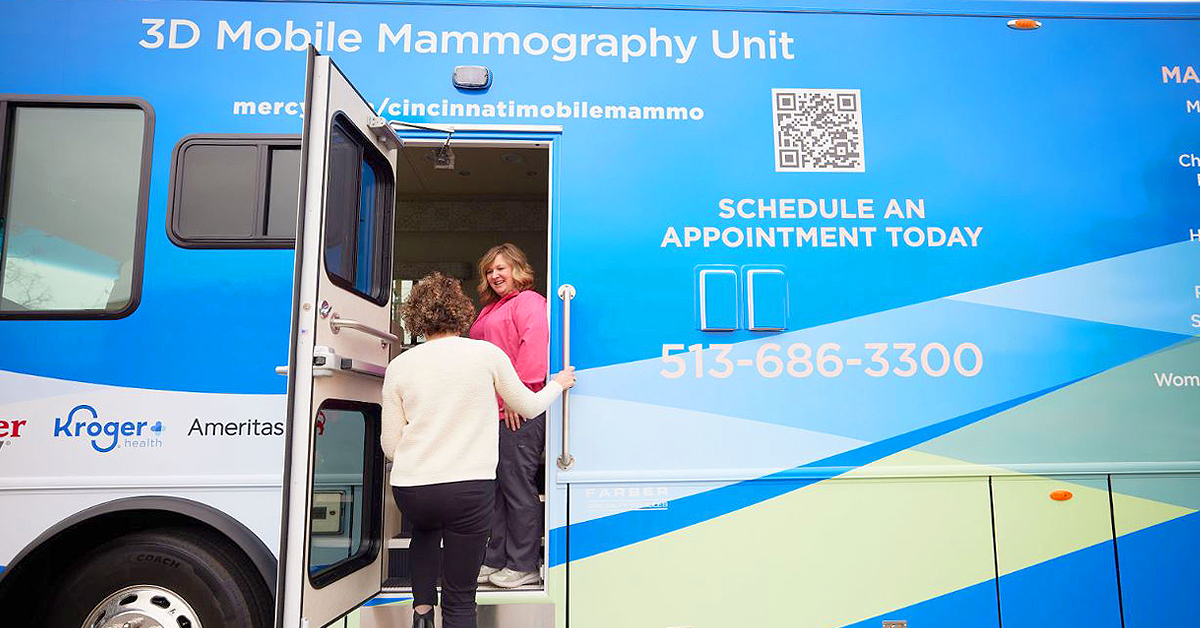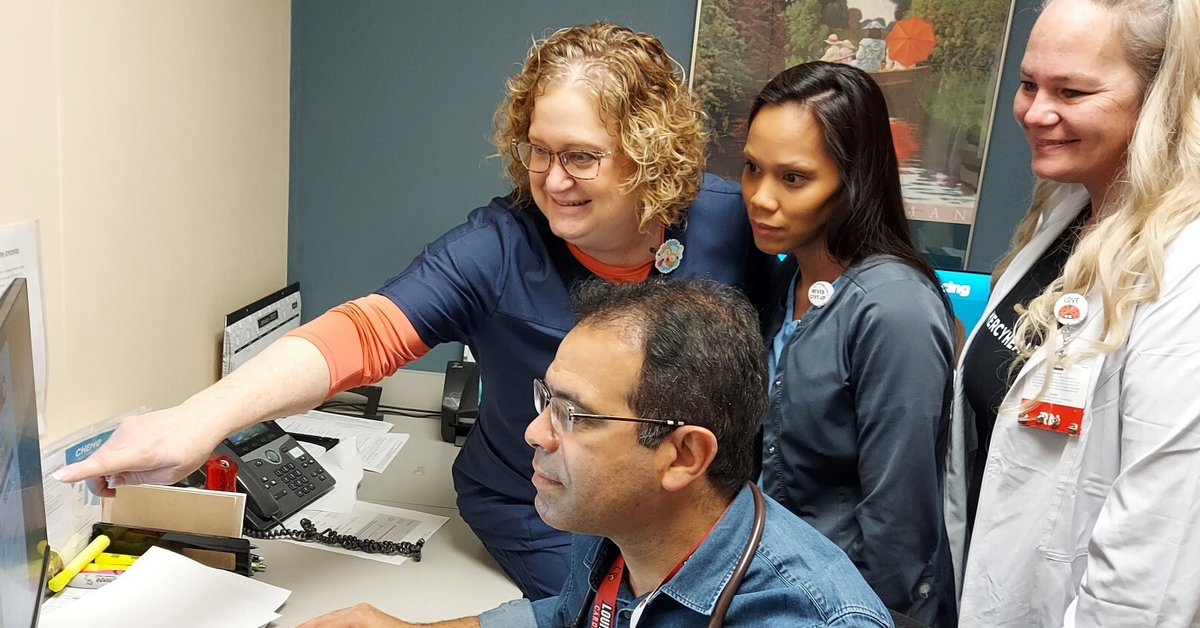COVID-19 has brought attention to glaring food inequalities in our country. Even prior to this pandemic, 40 million Americans struggled with food insecurity. In recent months, sources report that rates of household food insecurity have since doubled.
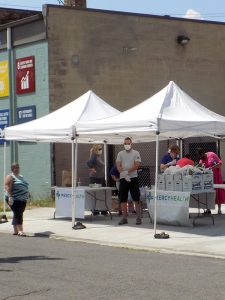
In the Mahoning Valley area of Ohio specifically, 22% of households struggled to buy enough food for their families, making this community the 2nd most food insecure metropolitan area in the nation.
As grocery stores have left cities like Youngstown, residents now have to travel further and pay more for healthy foods. Fast-food chains and convenience stores remain the only close places with food. The cheaper but unhealthy options they offer have been known to cause many chronic diseases.
To increase the accessibility as well as affordability of fresh, healthy foods, Mercy Health, with funding from the Mercy Health Foundation, created the Fruit & Vegetable Prescription (FVRx) Program. The goal is to help our patients and community members achieve better health outcomes by providing financial support for healthy food purchases, increasing awareness of healthy eating, and creating resources on how to prepare healthy meals on a budget.
How the FVRx Program works
Historically, the program has provided a $25 monthly voucher that participants can use to purchase fresh, local fruits and vegetables at area farmers markets from June through October.
The program began in 2013 with an average of 200 patients enrolled each year. Enrollment expanded to 550 patients in 2018 and 720 in 2019 thanks to a Food Insecurity Nutrition Incentive (FINI) grant from the US Department of Agriculture. There are 545 patients currently enrolled this year.
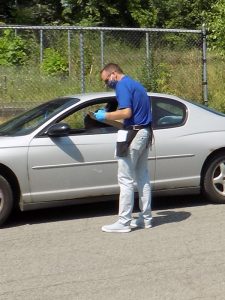
Program changes due to COVID-19
Because of the COVID-19 pandemic, some farmers markets were closed this summer. To support those enrolled, the program shifted to a “Fresh Produce Box Drive-Away” held each month. Delivery options were provided for those without transportation.
Thanks to additional support from the Mercy Health Foundation, the program began two months earlier this year to provide much needed healthy food to patients impacted by COVID-19.
Impact of the FVRx Program
In 2019, 98% of those enrolled reported eating more fruits and vegetables. Overall, each patient in the program increased their fruit and vegetable consumption by one-and-a-half servings per day. Additionally, 85% of patients rated their knowledge of healthy eating as “good” after participating in the program—an increase from 65% before participation.
After receiving her first produce box, one patient excitedly told staff, “thanks to your program, I realized that I really like kale!”
Another patient wrote via text message, “I want to thank you again for this wonderful program. I can’t tell you what a huge help this box of produce is every month and how much I appreciate it. May God bless all of you that are involved in providing this program.”
In addition to providing healthy food to patients, this program also directly supports local farmers and increases the sustainability of area farmers markets, thus benefitting the local economy.
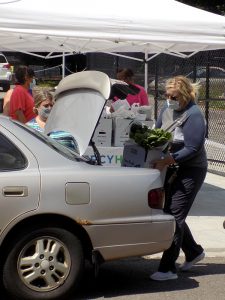
Who can participate?
Patients who have a Mercy Health physician and receive SNAP/EBT benefits are eligible to participate in the program. The program also serves a limited number of Mercy Health patients who do not receive SNAP/EBT benefits.
How to enroll in this program
Patients are enrolled at their local Mercy Health clinic or primary care site through staff and physician referrals. The enrollment period typically lasts from January through May of each year. Patients will receive a welcome packet to introduce them to the program. After this, a Community Health Education staff member will follow up and check in on a monthly basis.
If you are a Mercy Health patient who would like to enroll in this program in 2021, contact your primary care physician. If you would like to get involved as a volunteer, contact the Community Health Education staff at (330) 480-2335.
Learn more about the nutrition services we offer at Mercy Health.
The project is a collaboration between Mercy Health, Youngstown Neighborhood Development Corporation, Trumbull Neighborhood Partnership, Lake-to-River Food Co-op and Howland Township. Many other individuals and organizations have assisted by providing nutritional information, recipes, cooking demonstrations, checking in patients, directing traffic at markets, and delivering produce to those without transportation.


